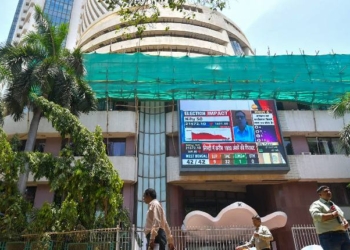New Delhi: The Central Bank’s decision to keep repo rates unchanged at 6.5 per cent for the ninth consecutive time aligns well with the government’s indexation benefits, industry experts said on Thursday, adding that this will further help aspiring homebuyers.
RBI Governor Shaktikanta Das said that the Monetary Policy Committee (MPC) has decided to keep the repo rate unchanged as inflation has risen above 5 per cent, beyond the targeted level of 4 per cent.
Anuj Puri, Chairman of Anarock Group, said that the RBI’s decision sets a positive tone for the housing industry.
“With interest rates staying steady, EMIs will remain manageable for current and potential homeowners, potentially leading to increased home sales – particularly in the price-sensitive affordable segment,” he said.
The earlier announcement regarding indexation also brings tax advantages for property investors, as it permits adjustments to the purchase price keeping inflation in mind, reducing capital gains tax burdens upon property sale.
According to Madhavi Arora, lead economist at Emkay Global Financial Services, the RBI is likely to be on wait-and-watch mode for assessing multiple macro forces.
“We understand that shifting debates on global narratives require the RBI to be flexible. However, the volatility in India FX and rates has been manageable amid the recent global market turmoil, giving flexibility to the RBI to stay focused on domestic inflation and financial sector risk management,” said Arora.
The RBI Governor said the country’s inflation rate is expected to come down in the third quarter of the current financial year.
According to Vimal Nadar, Senior Director and Head, Research at Colliers India, the RBI has remained cautious and maintained benchmark lending rates at 6.5 per cent.
“In the first MPC meeting after the Budget, the RBI has projected a GDP growth rate of 7.2 per cent for FY2025, led by robust high frequency economic indicators across key sectors,” said Nadar.
Interestingly, stability in interest rates coupled with the recent announcement to rationalise stamp duty charges along with concessions for women homebuyers bodes well for the real estate sector, especially residential segment.
“Moreover, partial withdrawal of the applicability of the revised LTCG tax arising out of sale of land and buildings retrospectively provides elbow room to effect housing sales with minimal tax outgo,” Nadar noted.
Shrinivas Rao, FRICS, CEO, Vestian said that a steady monetary policy for the past one and half years has ensured stability in the real estate sector, boosting demand for all asset classes.
Though India’s position today is far more resilient on the economic front which could have allowed a slight rate reduction to test the water on inflation and exchange rates, the RBI has taken a safer bet and decided to wait for rate reduction by the third or the fourth quarter of this year, said Umeshkumar Mehta, CIO, SAMCO Mutual Fund.
(IANS)
















